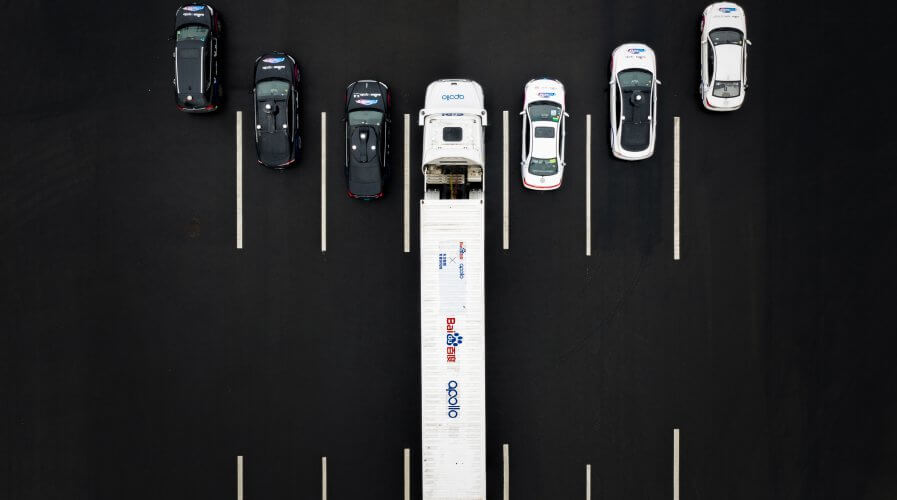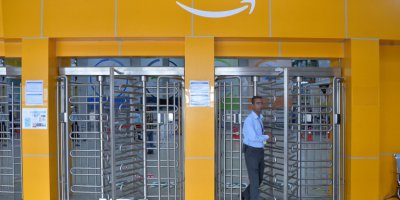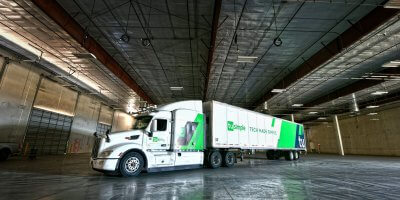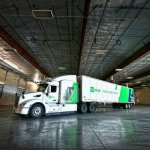
A fleet of Baidu’s autonomous vehicles on a highway in China. Source: Baidu
Walmart taps Baidu’s driverless technology for last-mile delivery
AUTONOMOUS technology companies in China have made significant progress over the past few months, and the US is one of its biggest fans.
Most recently, Udelv, a provider of autonomous delivery vans in California announced that it will be collaborating with China’s Baidu to get its new Newton van on the road later this year.
Among companies benefiting from the new Udelv vehicle, Walmart and Direct-to-the-Mechanic automotive parts supplier XL Parts are most prominent.
“The pilot program with Udelv will take place in Surprise, Arizona. What’s really cool is that Udelv will utilize a cargo van custom-made to deliver fresh groceries – hand-picked by our personal shoppers – to customers,” said Walmart Digital Operations Senior VP Tom Ward.
The announcement was made at CES 2019 event and the collaboration between Udelv and Baidu is expected to help bring better last-mile delivery solutions to flourishing retail and e-commerce companies in the US that are looking to take their customer experience up one notch.
According to Baidu, Udelv will be deploying up to 100 autonomous delivery vans on the road this year, in several locations, including the San Francisco Bay Area.
All of these vehicles are expected to leverage Baidu’s Apollo 3.5 software platform — the first open source autonomous driving platform that can perform in complex urban and suburban driving scenarios.
The new release unlocks the tools developers need to create reliable self-driving mobility solutions such as robo-taxis and autonomous delivery services.
Although Baidu’s technology is making waves in the US, the company is also making quick progress at home in China.
In 2019, 100 robo-taxis will operate on 130 miles of city roads equipped with Baidu’s V2X technology in Changsha, the capital city of Hunan province in the south-central part of China.
The fleet will be China’s first group of autonomous driving taxis managed by Baidu’s V2X system, a comprehensive solution that integrates smart vehicles and intelligent road infrastructure for safer deployment of autonomous cars.
However, Baidu isn’t the only autonomous driving technology company winning heart (and business) in the US.
Autonomous trucking startup TuSimple, for example, recently announced that in response to growing commercial demand from 12 contracted customers, including Fortune 100 and large international companies, the company will grow from 11 to 40 trucks in fully-autonomous operation by June.
When complete, the expansion of the fleet will make TuSimple the largest self-driving truck solutions company worldwide.
TuSimple also announced that it is working with companies such as Cummins to enable powertrain integration with its autonomous technologies.
“Exactly one year after debuting our prototype system at CES 2018, we’re now running up to five commercial trips a day in Arizona, expanding our fleet and moving quickly toward our goal of creating the first commercial self-driving truck,” said TuSimple Founder, President, and CTO Dr. Xiaodi Hou.
“We are making tremendous progress towards the commercialization of our technology and trucking ecosystem with key Tier 1 partners like Cummins. The viability and power of our autonomous truck solutions is being proven daily on highways and local streets.”
The fact is, China is making significant progress with driverless technology and US companies, directly or indirectly, are lining up to leverage it to create better and smarter solutions for customers.
In the coming months, despite the souring trade relations between China and the US, it is expected that more stories of collaboration and success will emerge from the two countries.
READ MORE
- Strategies for Democratizing GenAI
- The criticality of endpoint management in cybersecurity and operations
- Ethical AI: The renewed importance of safeguarding data and customer privacy in Generative AI applications
- How Japan balances AI-driven opportunities with cybersecurity needs
- Deploying SASE: Benchmarking your approach






